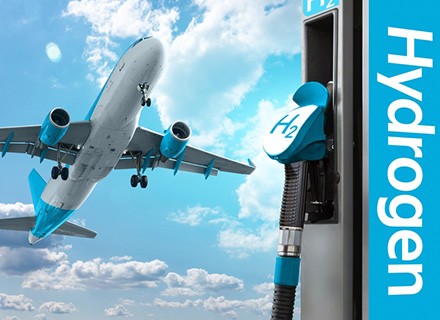To lessen their carbon footprints, businesses are buying sustainable aviation fuel (SAF), promoting the widespread use of cleaner energy, as airlines scramble to meet their emissions targets.
Companies are moving beyond solutions like planting trees to decrease the environmental impact of flying. Aviation sector is increasingly providing corporate customers with the ability to buy SAF unrelated to specific trips.
Given the scarcity of SAF, which uses feedstocks like cooking oils to reduce emissions from conventional fuel by up to 80%, but is only available at a select number of airports worldwide, the industry is moving toward a “book and claim” accounting system.
Five corporations will pay more under a recent agreement announced by Qantas Airways to decrease their emissions by paying for the aircraft to use SAF supplied by BP at London’s Heathrow Airport.
The interested businesses are eligible to claim an emissions reduction that can be applied to several possible projects unrelated to their business trips from London to Australia.
Boston Consulting Group (BCG), a participant who is also purchasing SAF from fuel providers SkyNRG and Neste, as well as United Airlines, said it was seeking to scale the SAF market to accomplish its own goals.
Another Qantas partner, Australia Post, stated that it would utilise the credits to lower its air freight emissions when SAF is not accessible in Australia.
Similar programs are offered by an increasing number of airlines.
SAF only made up 0.5% of aviation fuel in 2021, but several airlines aim for 10% by 2030, and the industry needs SAF to make up 65% of energy to achieve “net zero” emissions by 2050.
Corporations account for about 20% of air travel globally and 30% in Europe, so corporate sector interest might help the SAF industry scale up, according to Denise Auclair, corporate travel campaign manager at the European non-governmental organisation Transport & Environment.
Few airlines, including Scandinavia’s SAS and Finnair, allow individual customers, such as vacationers, to pay for SAF to lower flying emissions.
According to Sami Jauhiainen, vice president of APAC at Neste’s renewable aviation company, companies pay a “green premium” when they purchase SAF given that it costs roughly three to five times more than conventional jet fuel.
To collect SAF credits and prevent issues like double claiming, businesses can get into direct contracts with airlines, travel companies like American Express Global Business Travel (Amex GBT) (GBTG.N), and fuel suppliers like Neste.
According to a World Economic Forum (WEF) white paper, double-claiming problems will become more severe as more nations enforce a specific amount of SAF mixed in all aviation fuel. For example, the European Union will impose a 2% minimum starting in 2025, whereas France already has a 1% requirement.
In the most significant book and claim pilot to date, Amex GBT collaborated with Shell and Accenture to develop a blockchain-based platform to guarantee that certificates purchased by corporate customers are non-fungible.

